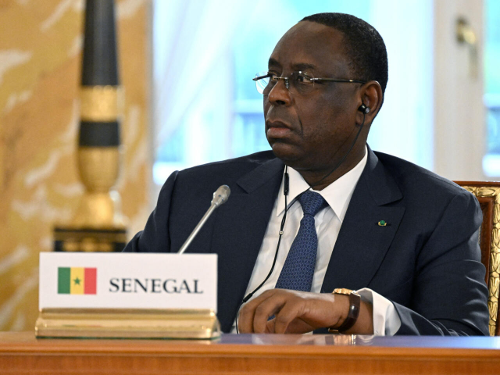Senegalese president Macky Sall postpones February election

TLDR
- President Macky Sall of Senegal has postponed the country's scheduled presidential election on February 25 due to electoral issues, sparking criticism and concerns of an "institutional coup".
- The cancellation of the election law just over three weeks before the vote places Senegal in uncharted constitutional territory and sets the stage for a potential prolonged legal battle.
- The decision comes after the constitutional council's ruling to exclude certain prominent contenders from the electoral list, further intensifying discontent with the election process.
President Macky Sall of Senegal has postponed the country's scheduled presidential election on February 25. In a televised address to the nation, he revealed the cancellation of the relevant law due to electoral issues that he warned could lead to disputes.
This unprecedented decision, made just over three weeks before the vote, places Senegal in uncharted constitutional territory and has been characterized by some opposition and civil society groups as an "institutional coup."
The move has sparked criticism, with one opposition coalition pledging to challenge the decision in the courts. This sets the stage for a potential prolonged legal battle, further complicating the democratic landscape. President Sall's decision comes after the constitutional council's January ruling to exclude certain prominent contenders from the electoral list, intensifying discontent with the election process.
Key Takeaways
The political situation in Senegal has raised international concern. Both the West African regional bloc ECOWAS and the United States have called on authorities to provide clarification on the rescheduled date for the vote, as no new date has been set. France and the European Union have also urged for an election to be held as soon as possible. Tensions have escalated in Dakar, with police firing tear gas at demonstrators, and further protests have been scheduled for Monday. Senegal, historically considered one of the most stable democracies in West Africa, is now facing uncertainty regarding the timing of the election. Concerns about the fairness of the electoral race and the absence of a clear electoral timetable are challenging the country's democratic image. While President Sall's commitment not to seek a third term was initially welcomed, the current situation has raised worries about potential consequences and the need for a transparent and timely electoral process.

Next Frontier
Stay up to date on major news and events in African markets. Delivered weekly.
Pulse54
UDeep-dives into what’s old and new in Africa’s investment landscape. Delivered twice monthly.
Events
Sign up to stay informed about our regular webinars, product launches, and exhibitions.




